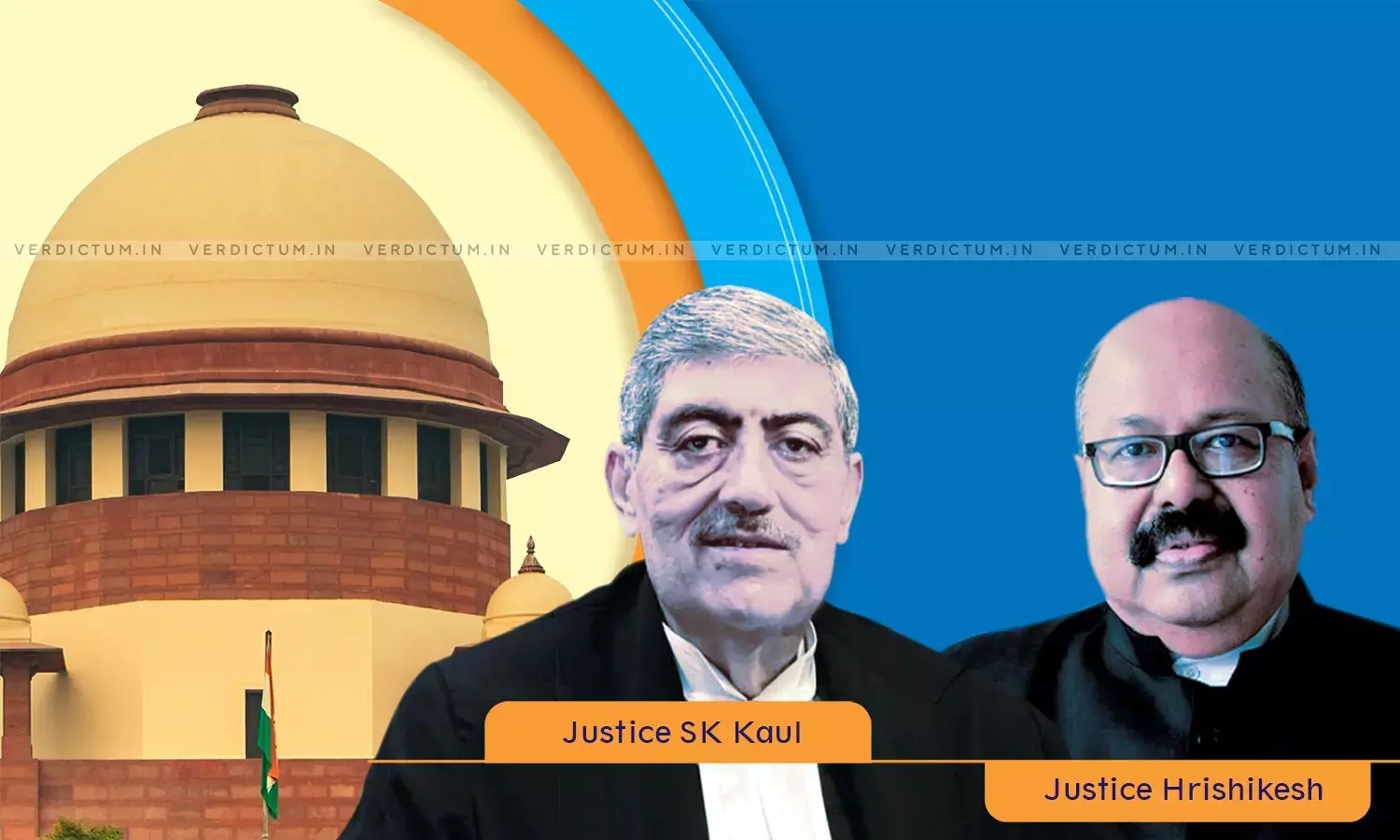Succeding Party Must Get Costs From Losing Party In 'Tender Jurisdiction': Supreme Court Orders Cost After Dismissing Challenge To Tender Process

While dismissing a challenge to a tender process, a Bench of the Supreme Court consisting of Justice Sanjay Kishan Kaul and Justice Hrishikesh Roy has observed that, "Almost no tender remained unchallenged in the country and interference by the parties by exercising judicial powers in such matters should be resisted. The judicial review of such contractual matters has its own limitations."
The Bench noted, "The ground reality today is that almost no tender remains unchallenged. Unsuccessful parties or parties not even participating in the tender seek to invoke the jurisdiction of the High Court under Article 226 of the Constitution. The Public Interest Litigation ('PIL') jurisdiction is also invoked towards the same objective, an aspect normally deterred by the Court because this causes proxy litigation in purely contractual matters."
While disagreeing the Judgment of the Division Bench of the High Court, interfering with the tender process, the Bench held that, "We have already noted that element of transparency is always required in such tenders because of the nature of economic activity carried on by the State, but the contours under which they are to be examined are restricted as set out in Tata Cellular (Tata Cellular v. Union of India) and other cases. The objective is not to make the Court an appellate authority for scrutinizing as to whom the tender should be awarded. Economics must be permitted to play its role for which the tendering authority knows best as to what is suited in terms of technology and price for them."
Facts of the Case
The Government of Tamil Nadu had invited a tender for purposes of production and supply of polyester based hologram excise labels on turnkey basis. The stickers were to be pasted across the caps of bottles of liquor sold by the State Government through one of its instrumentalities, the Tamil Nadu State Marketing Corporation. Two of the prospective tendering parties, M/s. Kumbhat Holographics (Kumbhat) and M/s. Alpha Lasertek India LLP (Alpha) filed writ petitions in October, 2020 before the Madras High Court, which permitted intervention by two other parties.
The primary contention both by Kumbhat and Alpha was that the terms of the tender were skewed in favour of Uflex Limited (Uflex) and Montage Enterprises Private Limited (Montage). The grievance raised by them was that certain requirements were introduced in the tender to ensure that only Uflex and Montage would be able to qualify under the tender requirements. The petitions were dismissed by the Single Judge and appeals filed by Kumbhat and Alpha were allowed by a Division Bench of the High Court.
While allowing the appeals, the Bench noted,
"The enlarged role of the Government in economic activity and its corresponding ability to give economic 'largesse' was the bedrock of creating what is commonly called the 'tender jurisdiction'. The objective was to have greater transparency and the consequent right of an aggrieved party to invoke the jurisdiction of the High Court under Article 226 of the Constitution of India, beyond the issue of strict enforcement of contractual rights under the civil jurisdiction. However, the ground reality today is that almost no tender remains unchallenged. Unsuccessful parties or parties not even participating in the tender seek to invoke the jurisdiction of the High Court under Article 226 of the Constitution. The Public Interest Litigation jurisdiction is also invoked towards the same objective, an aspect normally deterred by the Court because this causes proxy litigation in purely contractual matters."
The Bench observed that attempts by unsuccessful tenderers to persuade court to interfere in the tender process should be resisted,
"The judicial review of such contractual matters has its own limitations. It is in this context of judicial review of administrative actions that this Court has opined that it is intended to prevent arbitrariness, irrationality, unreasonableness, bias and mala fide. The purpose is to check whether the choice of decision is made lawfully and not to check whether the choice of decision is sound. In evaluating tenders and awarding contracts, the parties are to be governed by principles of commercial prudence. To that extent, principles of equity and natural justice have to stay at a distance. We cannot lose sight of the fact that a tenderer or contractor with a grievance can always seek damages in a civil court and thus, "attempts by unsuccessful tenderers with imaginary grievances, wounded pride and business rivalry, to make mountains out of molehills of some technical/procedural violation or some prejudice to self, and persuade courts to interfere by exercising power of judicial review, should be resisted."
After concluding that the Judgment of the Division Bench of the High Court is not sustainable, the Bench considered the issue of awarding cost to the winning side. The Bench noted that often there seems to be a hesitancy in the judicial system to impose costs, presuming as if it is a reflection on the counsel. The Bench observed that this is not the correct approach.
After considering precedents on the question of costs, the Bench summarised the principles on the subject thus:-
(i) costs should ordinarily follow the event;
(ii) realistic costs ought to be awarded keeping in view the ever increasing litigation expenses; and
(iii) the cost should serve the purpose of curbing frivolous and vexatious litigation.
The Bench allowed the Appeals while directing the respondents to pay the cost of Rs.23,25,750/- to the appellants and Rs.7,58,000/ to the state government.
Parties: UFLEX LTD. Versus Government of Tamil Nadu & Ors.

